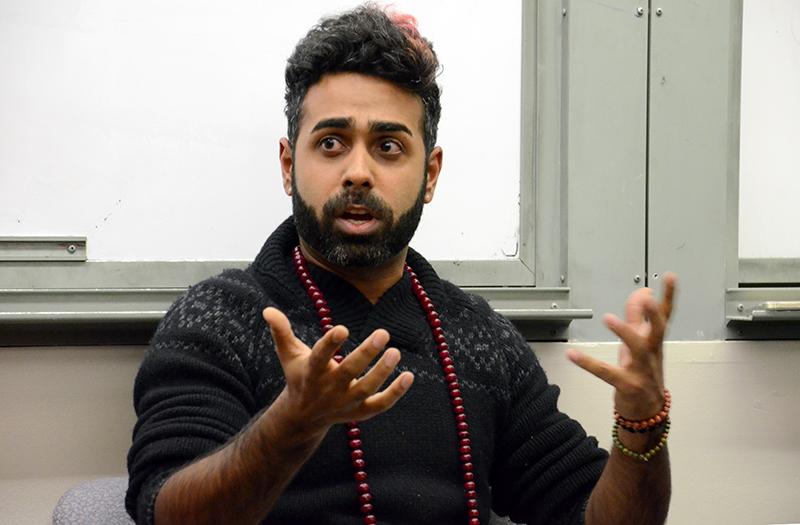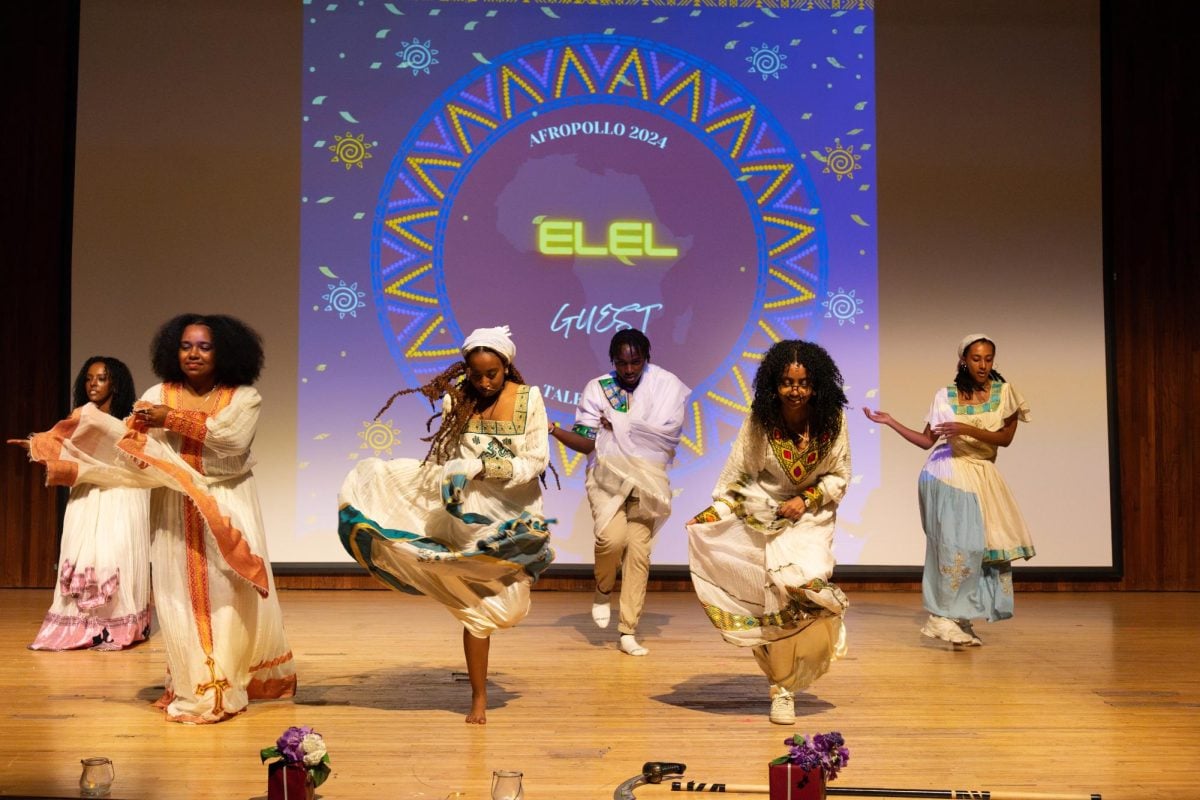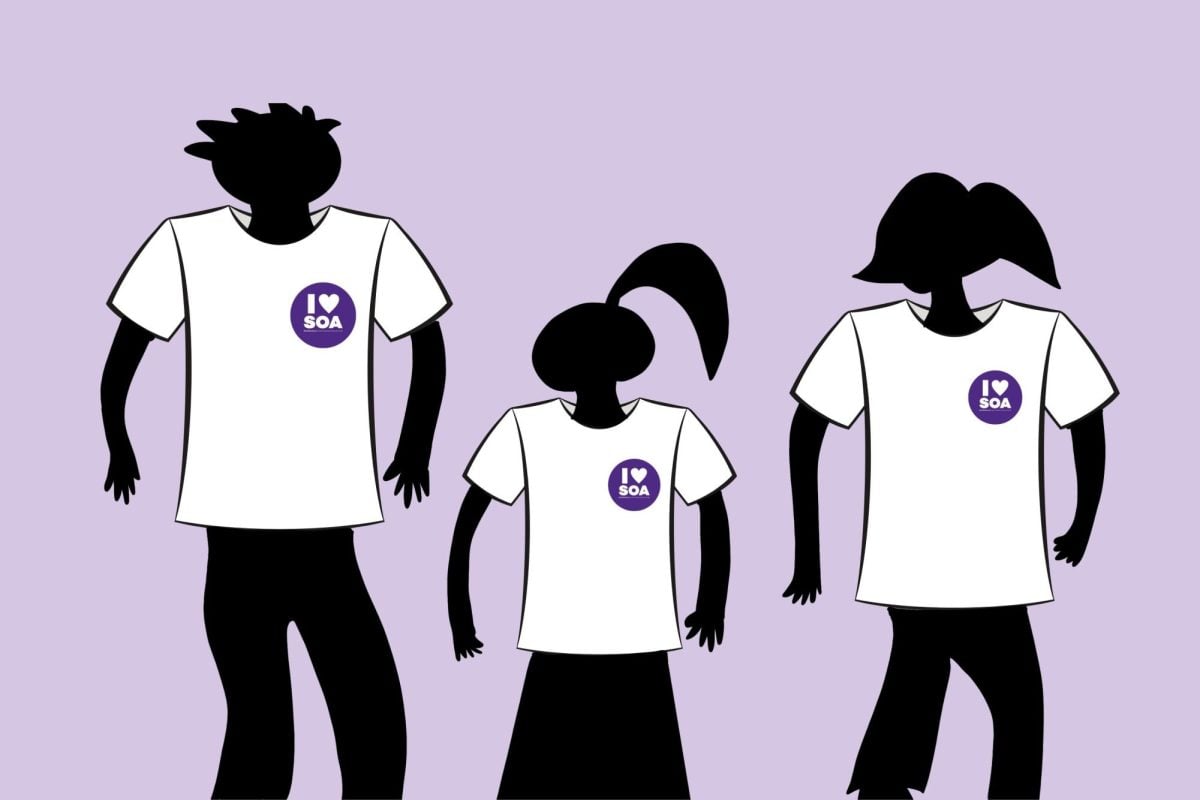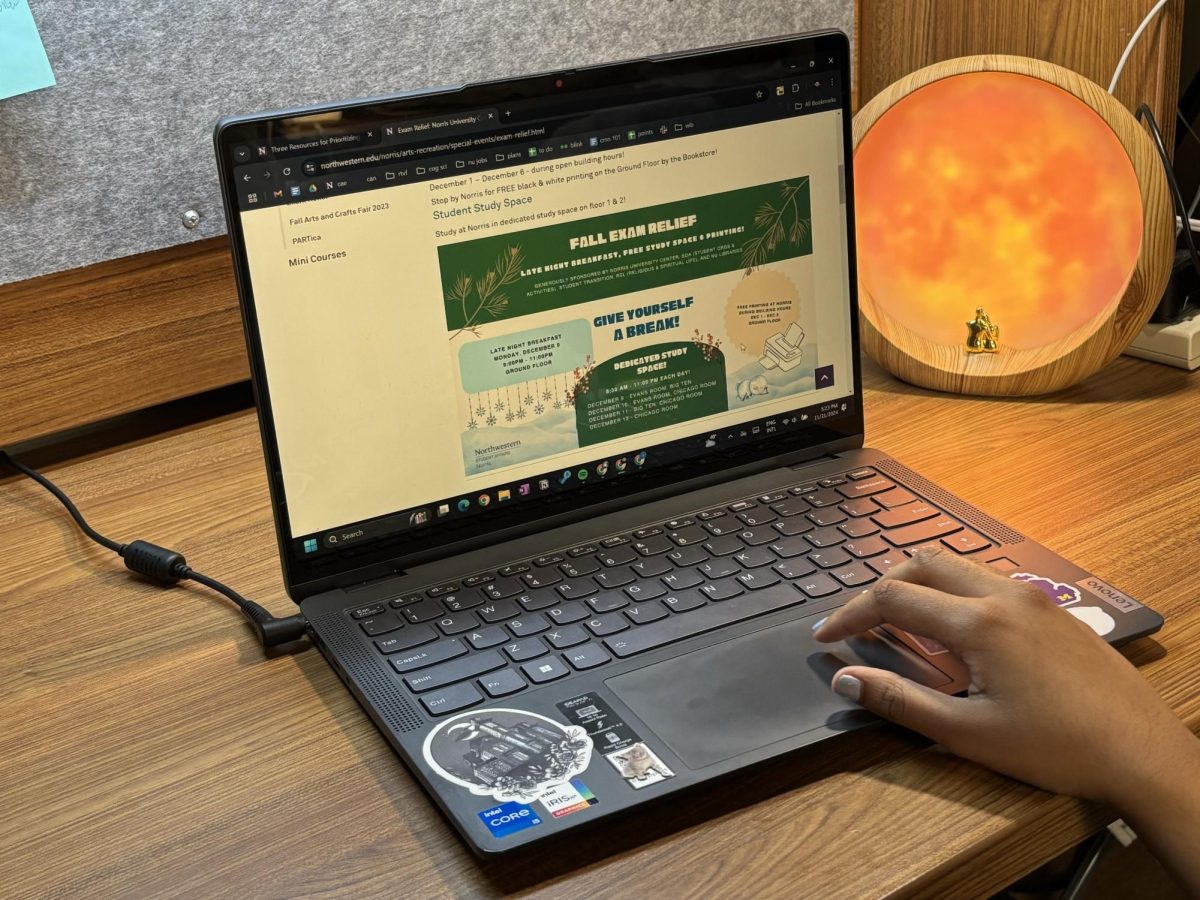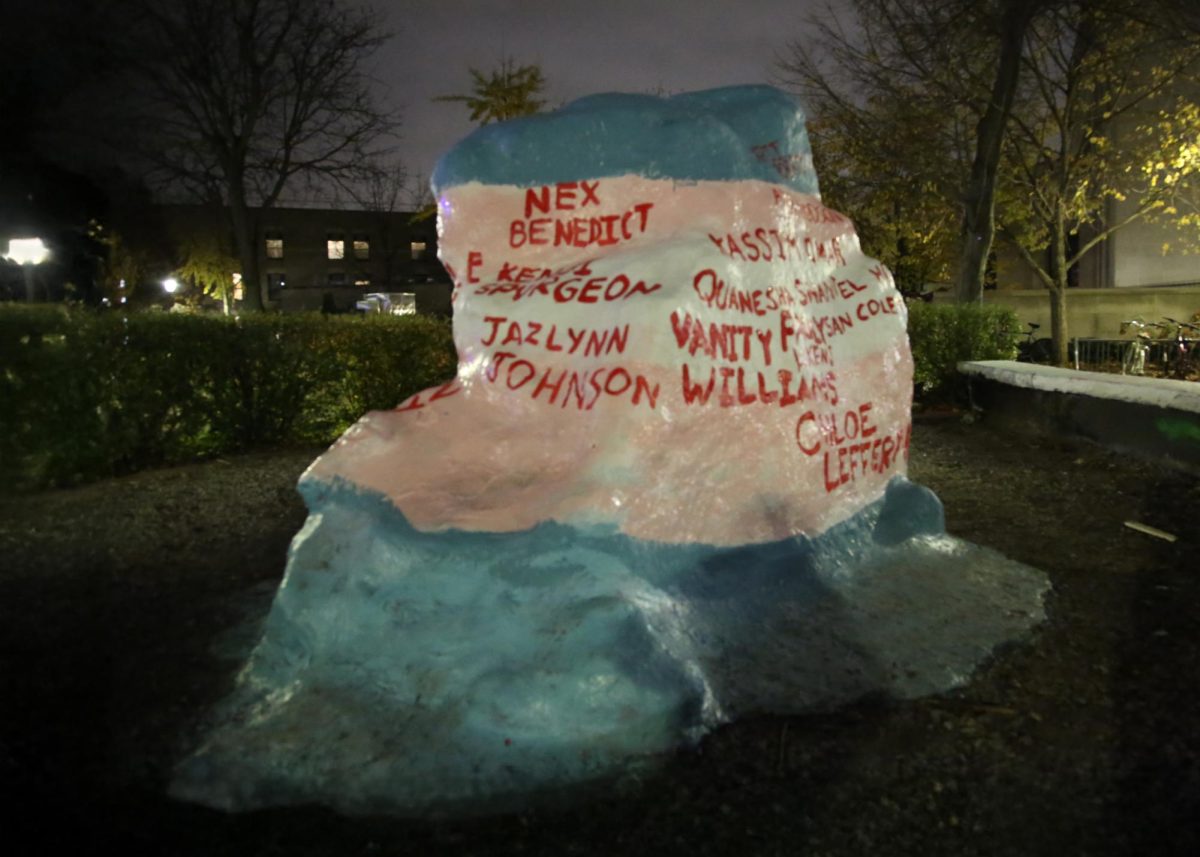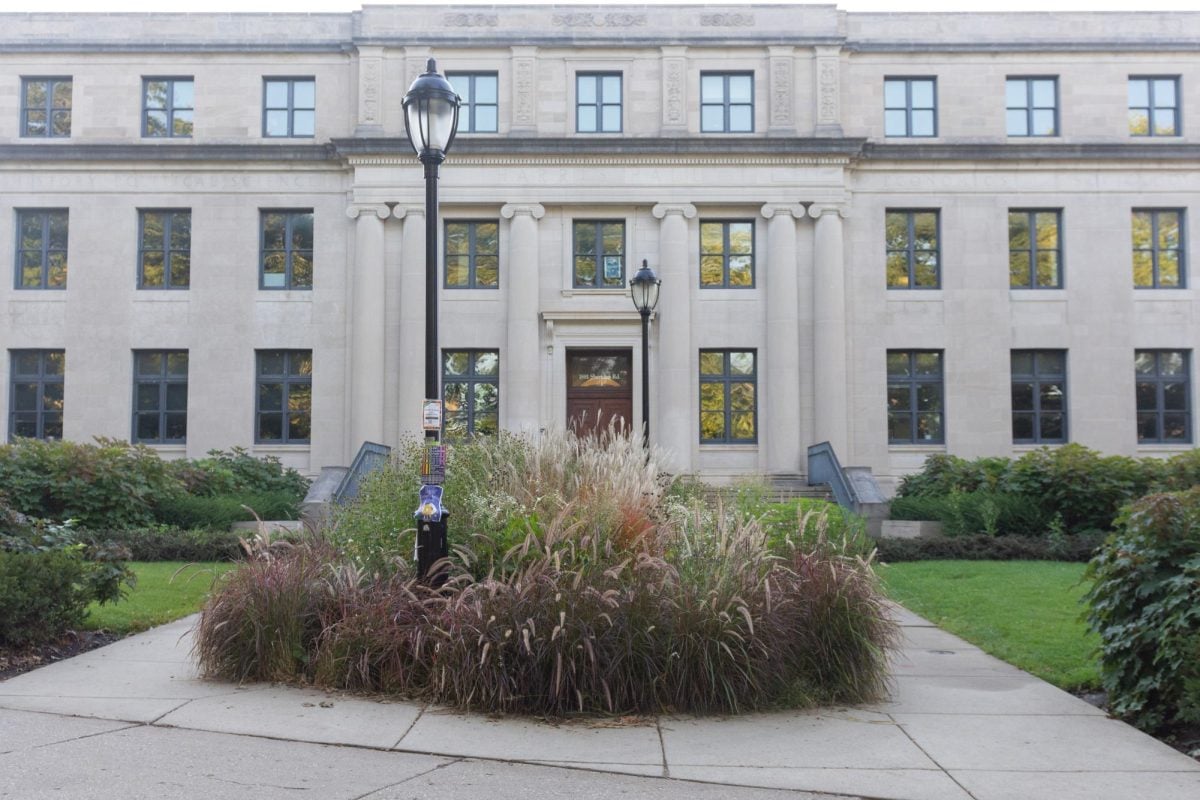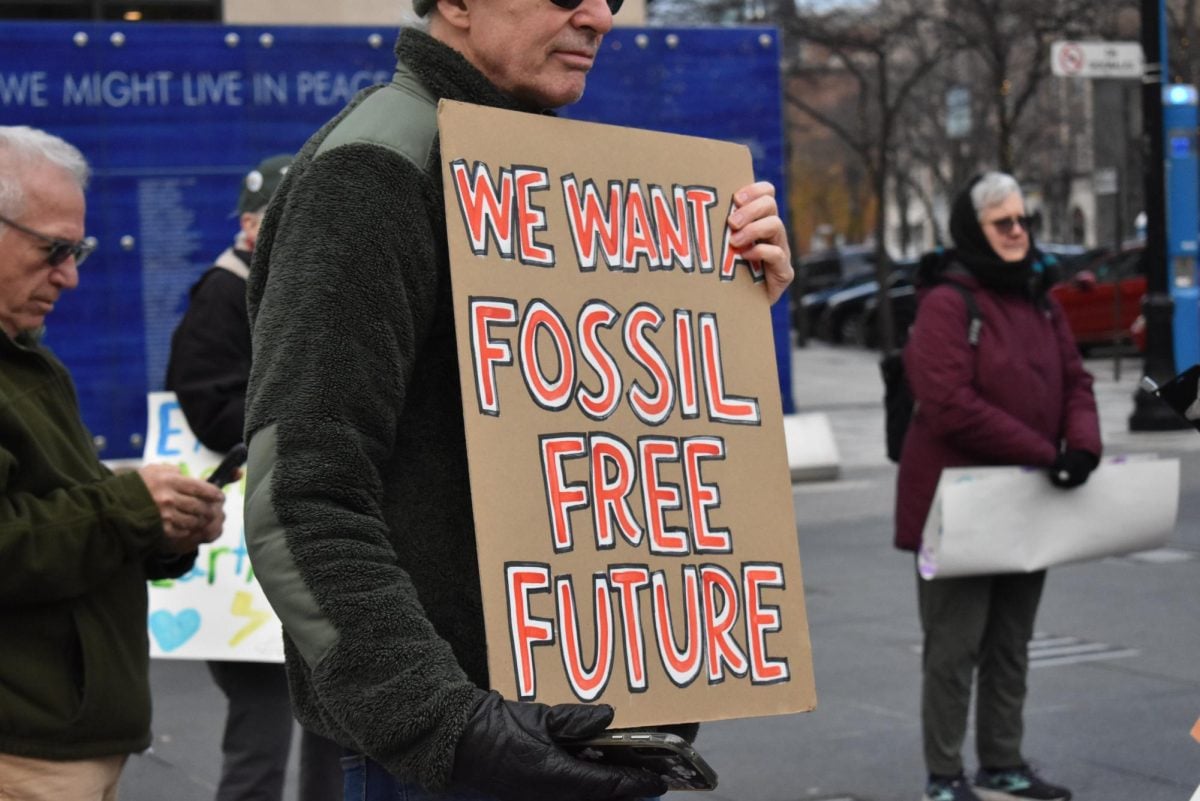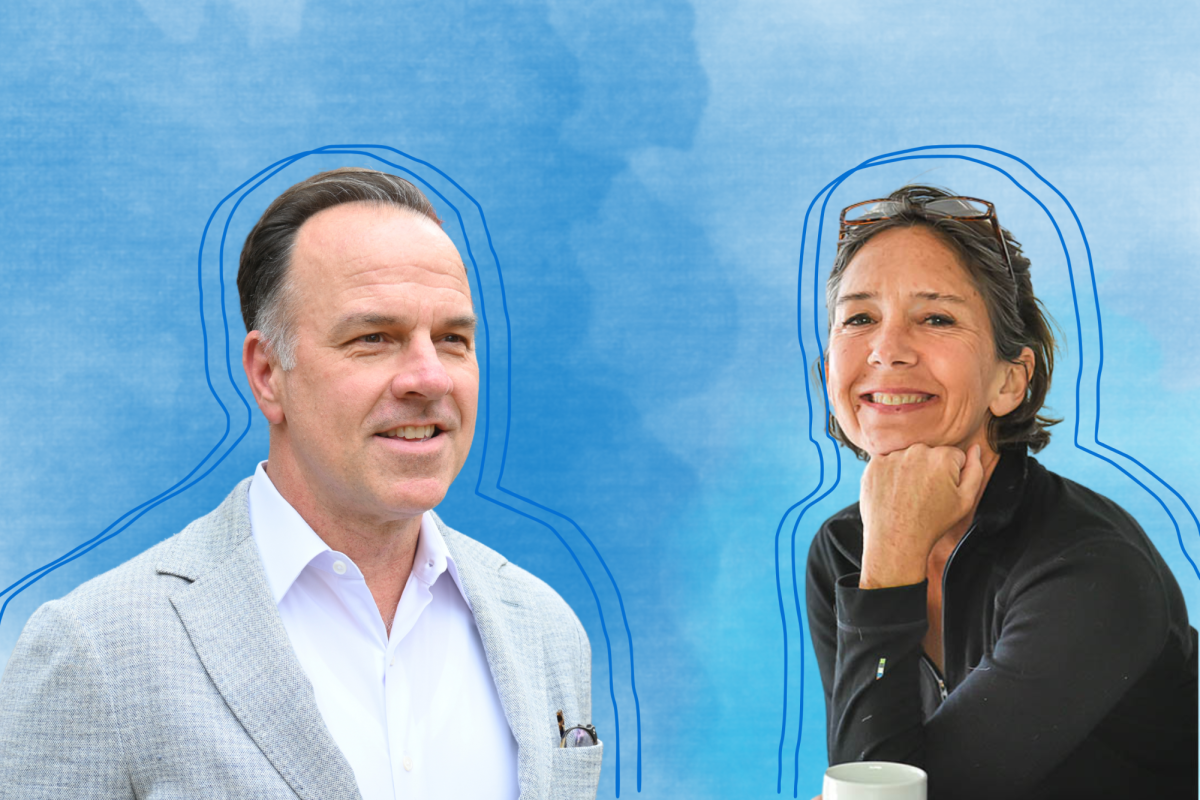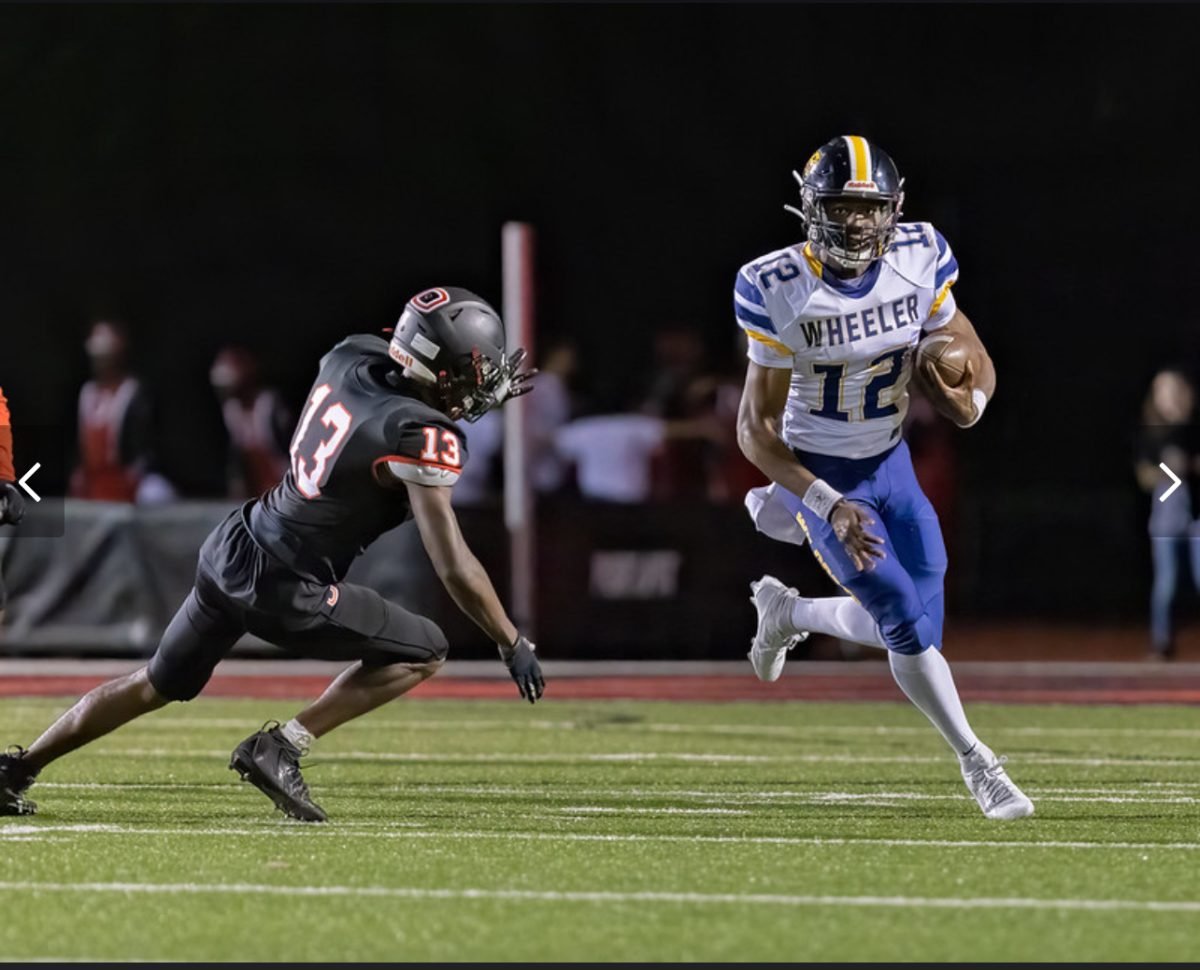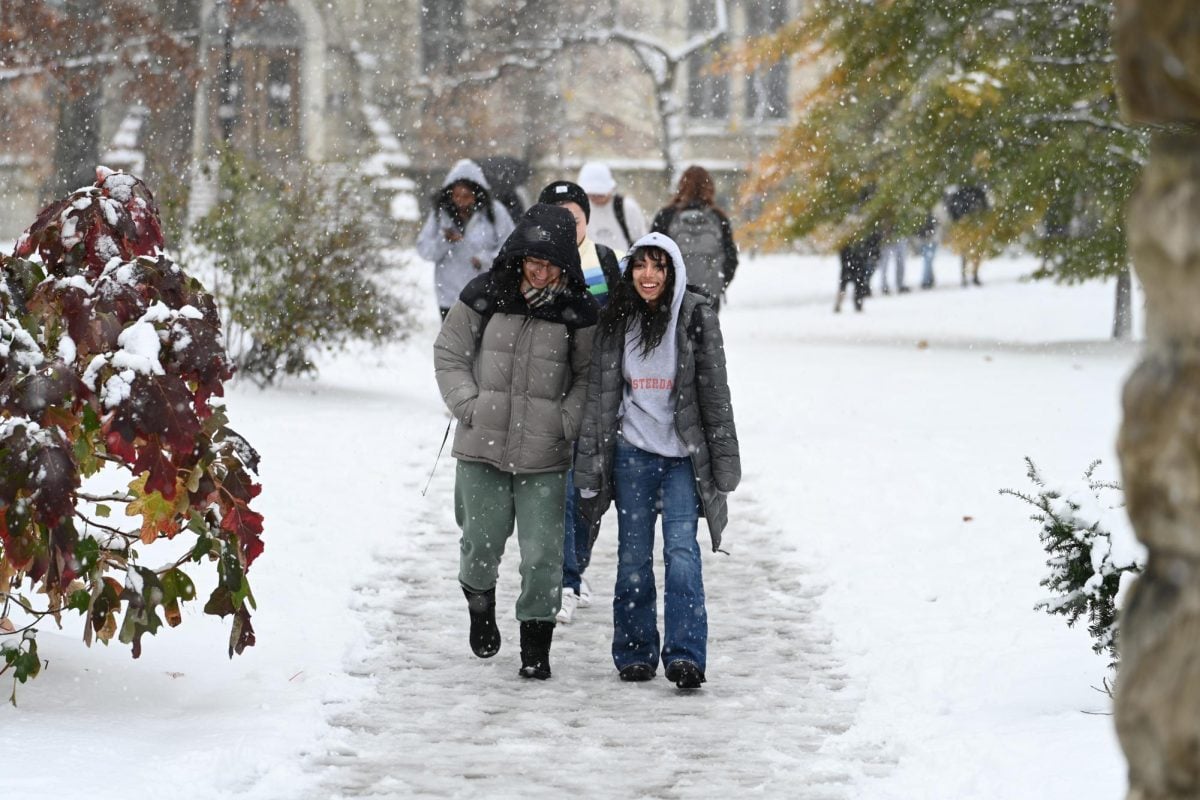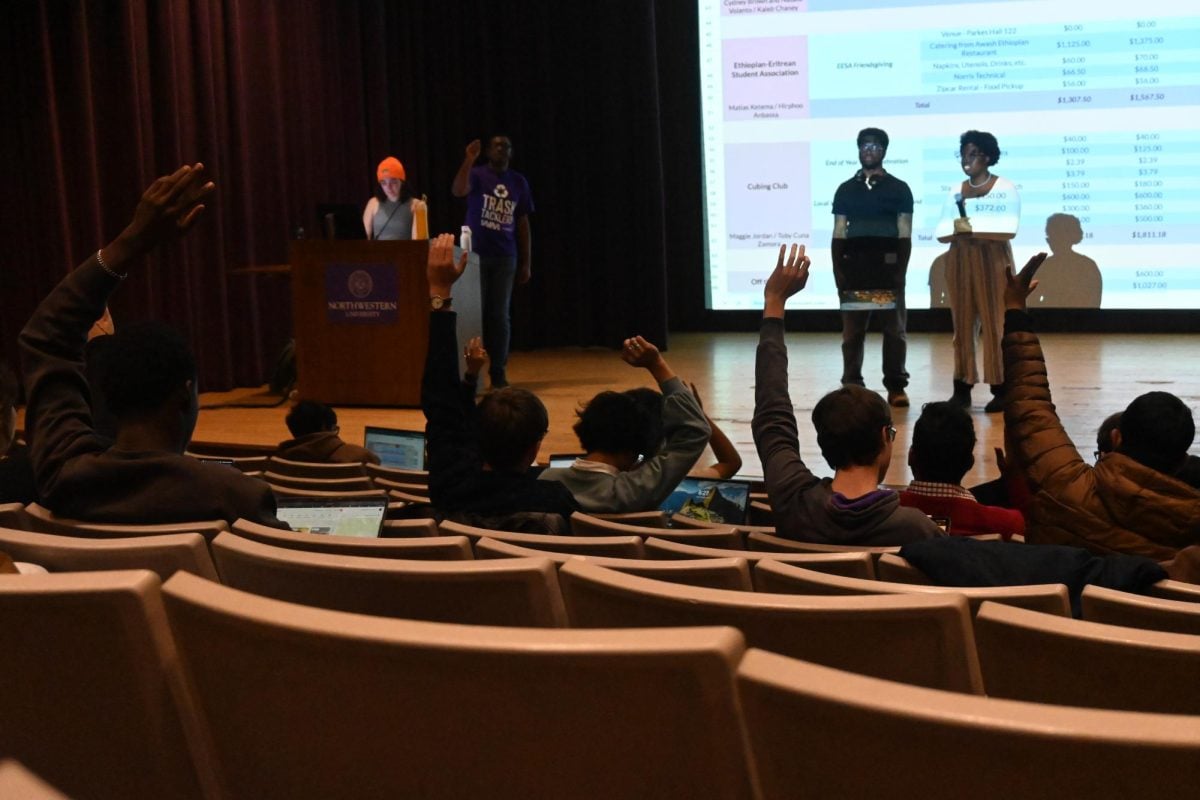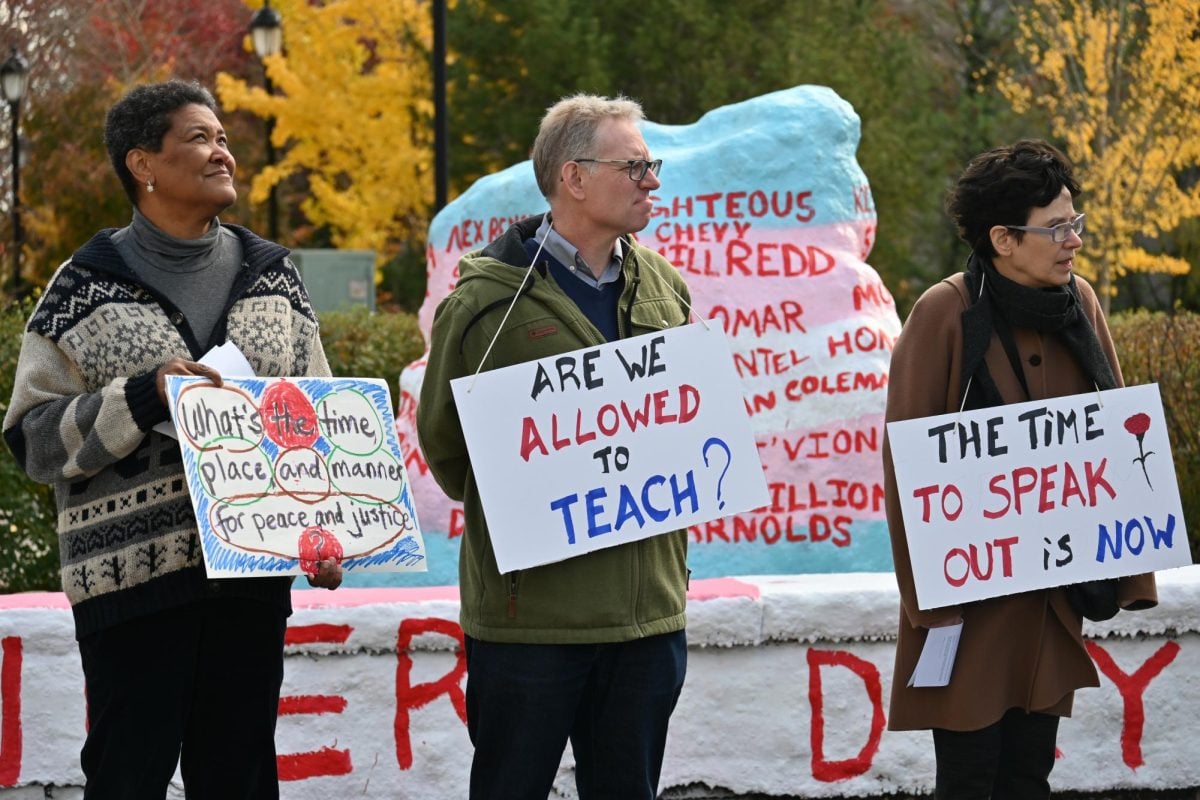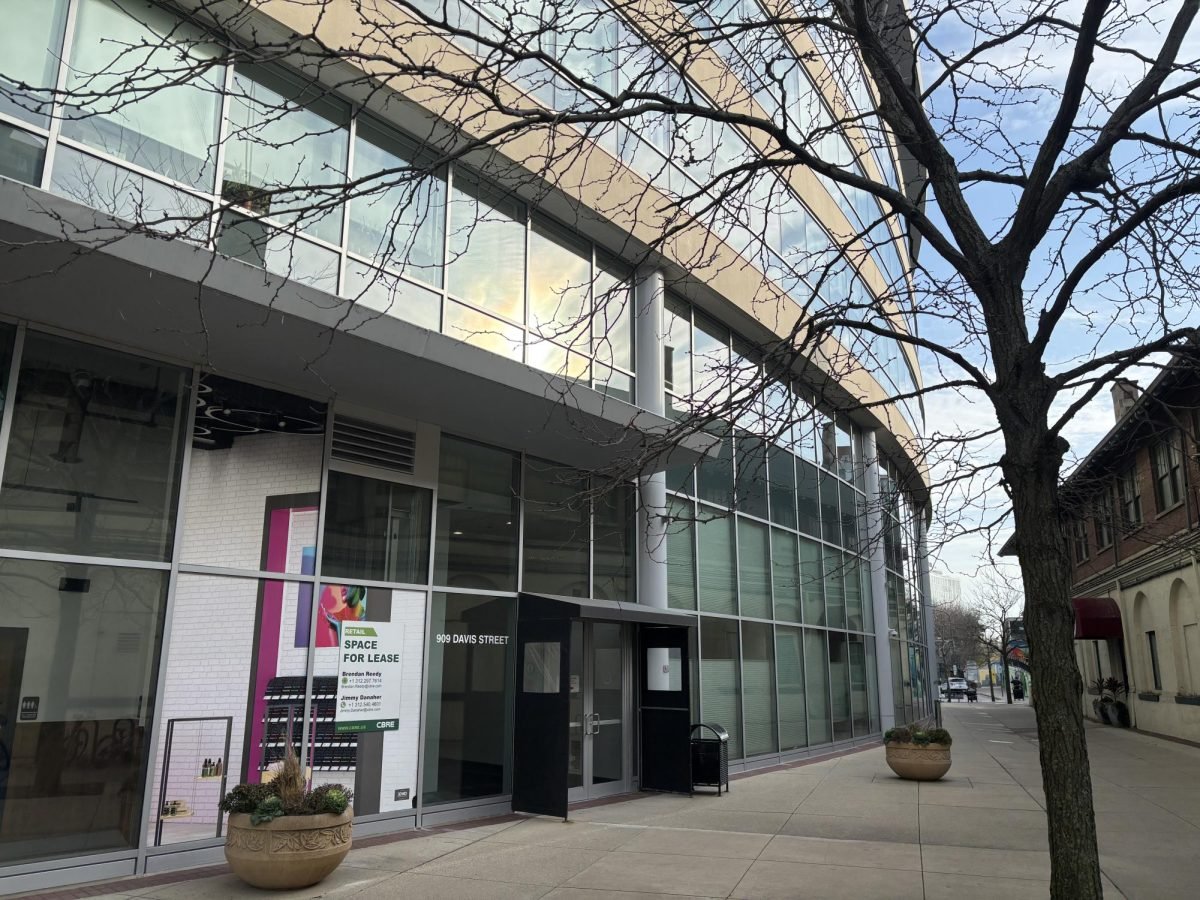A panel on interracial dating and the power of romance attracted more than 100 people Wednesday night to University Hall.
Presented by the Mixed Race Student Coalition that formed in the fall, the panel featured Asian American Studies and African American Studies Prof. Nitasha Sharma, PhD candidate Kareem Khubchandani and professional marriage and family counselor Jakara Hubbard.
Medill sophomore Kalina Silverman and SESP sophomore Tori Marquez, the co-presidents of MIXED, moderated the discussion before allowing the audience to ask some questions.
(Northwestern sophomores form group for mixed race students)
The dialogue started with a discussion on interracial dating and Hubbard touching on her experience as a biracial woman dating outside her ethnic background. Sharma identified statistics that showed the imbalance of marriage patterns between people of different races. For example, she said Asian women are much more likely to date and marry outside of their race as opposed to black women.
“Love is not colorblind,” Sharma said. “We are told who and what is valued and who and what is not valued.”
Khubchandani spoke about how this also applies to the homosexual experience. The same racial imbalances that affect interracial couples and marriages for heterosexual couples also apply to homosexuals, he said.
“The race will always matter,” Khubchandani said. “Even if you look white, the second someone knows about your race, it changes the way we see someone.”
Khubchandani also said the character of each person in a homosexual interracial relationship is manifested in deeply rooted stereotypes, as evidenced by the tendency of some who expect black men to play an aggressive sexual role in their relationships with other men.
“All these historical representations get named in public culture and pornography,” he said. “Porn is a great place to see racism.”
Hubbard and other panelists agreed that both the number of interracial couples and marriages would increase and as a result, so too would the number of mixed race people. More awareness is needed for this fast growing population, she said.
“They have this ability to see people through this different lens and take a look at their biases and focus on how you’re viewing people,” Hubbard said.
Additionally, the panelists spoke about the importance of race in society and how interracial marriage and dating could change racial dynamics in the country. Sharma said even though the mixed race population is increasing, this does not necessarily indicate a decline in racism as a whole, though it has the possibility of doing so.
“Walking across the racial line does not make you an anti-racist,” Sharma said. “But on the other hand, who you’re with tells you a lot about who you are. Sex and romance and love can be a potentially radical force.”
Weinberg freshman Rashad Laher said he enjoyed the casual nature of the discussion, despite the serious nature of the topics.
“Being mixed race, I really related to a lot of the things the panelists were saying,” he said. “I loved how blunt and open they were discussing taboo subjects such as sexual relations.”
MIXED was formed over the summer in response to the lack of a group for biracial or multiracial students on campus.
“Tonight was an inspiring moment,” Marquez said. “It showed all the work we’ve put in this year. We’ve grown not just in numbers, but from a social and academic standpoint.”
Editor’s Note: A summary of one of Khubchandani’s statements has been updated to clarify the statement’s intent.
Email: [email protected]
Twitter: @jgerez_news
